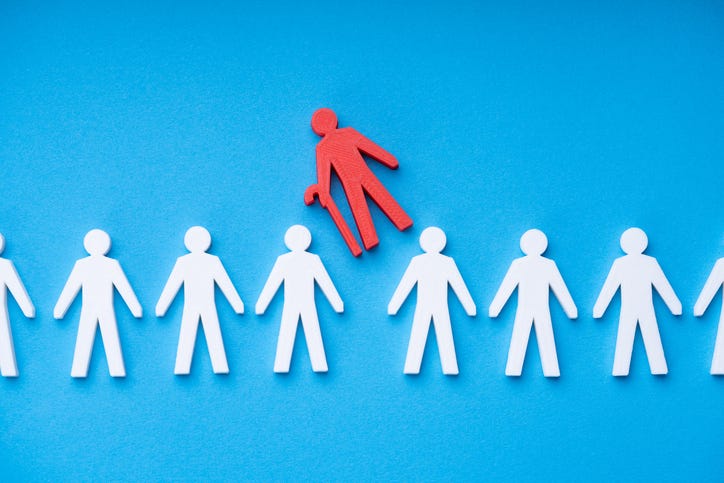
America's older workforce is not feeling the love. Recent research shows nearly all older workers have felt unfairly treated due to their age, and it's not just in their heads -- human resources professionals admit that age plays a role in some decisions their employers make.
About two in three adults ages 50-plus in the labor force (64%) think older workers face age discrimination in the workplace, according to AARP. Among them, nearly all (90%) believe that age discrimination against older workers is common in the workplace, and few see the situation improving.
"Based on what they have seen or experienced, over three in five (64%) believe workers face age discrimination in today's workplace and few see the situation improving.
Roughly one-third (32%) of older workers said they have heard negative comments in the workplace about an older coworker's age, while 17% have personally experienced negative remarks about their age, according to AARP.
The most common manifestation of ageism at work involves employers favoring younger or less experienced workers (43.6%), according to a survey by iHire. Other examples of ageism at work include coworkers (35.5%) or managers (34.0%) making comments or asking inappropriate questions about age, getting overlooked for or denied pay raises (28.5%), and being excluded from social events or team-building activities (22.1%).
Common age stereotypes also remain somewhat prevalent in the workplace. Data from the Society for Human Resource Management (SHRM) shows older employees are more likely to be perceived by others as not competent with technology (49%), resistant to new ways of doing things (38%), and stubborn or grumpy (48%).
Many workers who have been treated unfairly said they didn't take any action, such as speaking to a supervisor, because they didn't think it would make a difference -- and they might be right. SHRM data shows 11% of HR professionals agree that older employees are not always treated as fairly as younger employees.
Although it's difficult to know how employers make their hiring decisions, AARP's research indicates 1 in 10 (13%) older workers have been passed up for a promotion due to their age and 1 in 6 (15%) believe their age prevented them from getting a job they applied for.
SHRM data also shows nearly one-third (32%) of HR professionals admit that a job applicant's age played a role in decisions their organization made during the hiring process. HR professionals who work at organizations that offer diversity, equity and inclusion training are significantly less likely to report that age has played a role in decisions made during the job application process (26%) compared to those who work for organizations that do not offer such training (40%), SHRM added.
